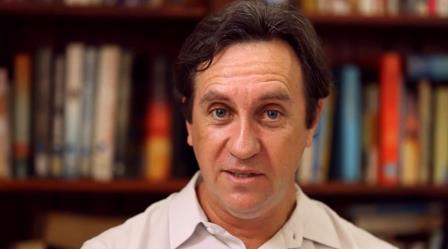Kingston Anderson.
The Australian Directors’ Guild is worried about cuts to feature film fees for some of its members and is unhappy about a lack of consultation with Screen Australia on remuneration.
The Guild recommends a fee of 3 per cent of budgets but some directors say they are getting as little as 1.5 per cent.
“When you work on a film for five years and the budget is low (say, $2 million) you are working for $30,000 or $6,000 per year on 1.5 per cent,” ADG CEO Kingston Anderson tells IF.
Anderson was speaking after Screen Australia expressed concern about an increase in applications for the Producer Offset for feature films that have unreasonably high above-the-line fees.
A big proportion of those fees is being reinvested in the belief that will meet the criteria for qualifying Australian production expenditure (QAPE). By law, the amount that can be claimed as QAPE on above-the-line fees is capped at 20 per cent of total film expenditure.
The agency’s Producer Offset and Co-production Unit (POCU) says decisions on market rates are made in partnership with industry and it consults with a pool of 20 independent practitioners including producers, line producers and production accountants.
Anderson said: “I would like to know who they are consulting in the “industry” about rates for directors. They are certainly not consulting us and I would have thought they would on this particular issue.
“I had a call from a senior member who is budgeting a feature at the moment with the producer and they are saying the director does not get 3 per cent as they had been getting for their previous features. Where is this coming from? Is it coming from Screen Australia?”
POCU senior manager Michele McDonald stresses her unit has no role in prescribing fees payable to anyone working on a production, including directors.
However where the fee is not an arm’s length arrangement – as when the director is also reinvesting into the film – Screen Australia is compelled under the legislation to attach a QAPE value to the fee which POCU considers is an arm’s length rate. This assessment takes place after completion of the production and should have no impact on the director’s fee.
Applicants are consulted when an external person is attached to their application and that person must pass conflict checks. Screen Australia also has the benefit of hundreds of projects passing through the POCU which assists in comparing projects and reaching a view on market rates for the purposes of assessing the appropriate QAPE.
Any applicant who is unhappy with a QAPE assessment from the agency can have it reviewed at the Administrative Appeals Tribunal.
Separately, Screen Australia’s production investment department has a role in approving budgets for projects in which it invests and it engages with Screen Producers Australia and the guilds including, recently, the ADG, she added.
Anderson is not satisfied, telling IF: “That still doesn’t answer the question: Where do they get their figures from? I have been in communication with Screen Australia about this and they tell me they use the MEAA/SPA production agreement weekly rate, which bears no resemblance to the market.
“Also, MEAA does not represent directors so it would seem that it is the producers calling the shots. We have not been consulted at any stage about directors’ rates for features films even though we are the officially registered organisation representing screen directors. “


